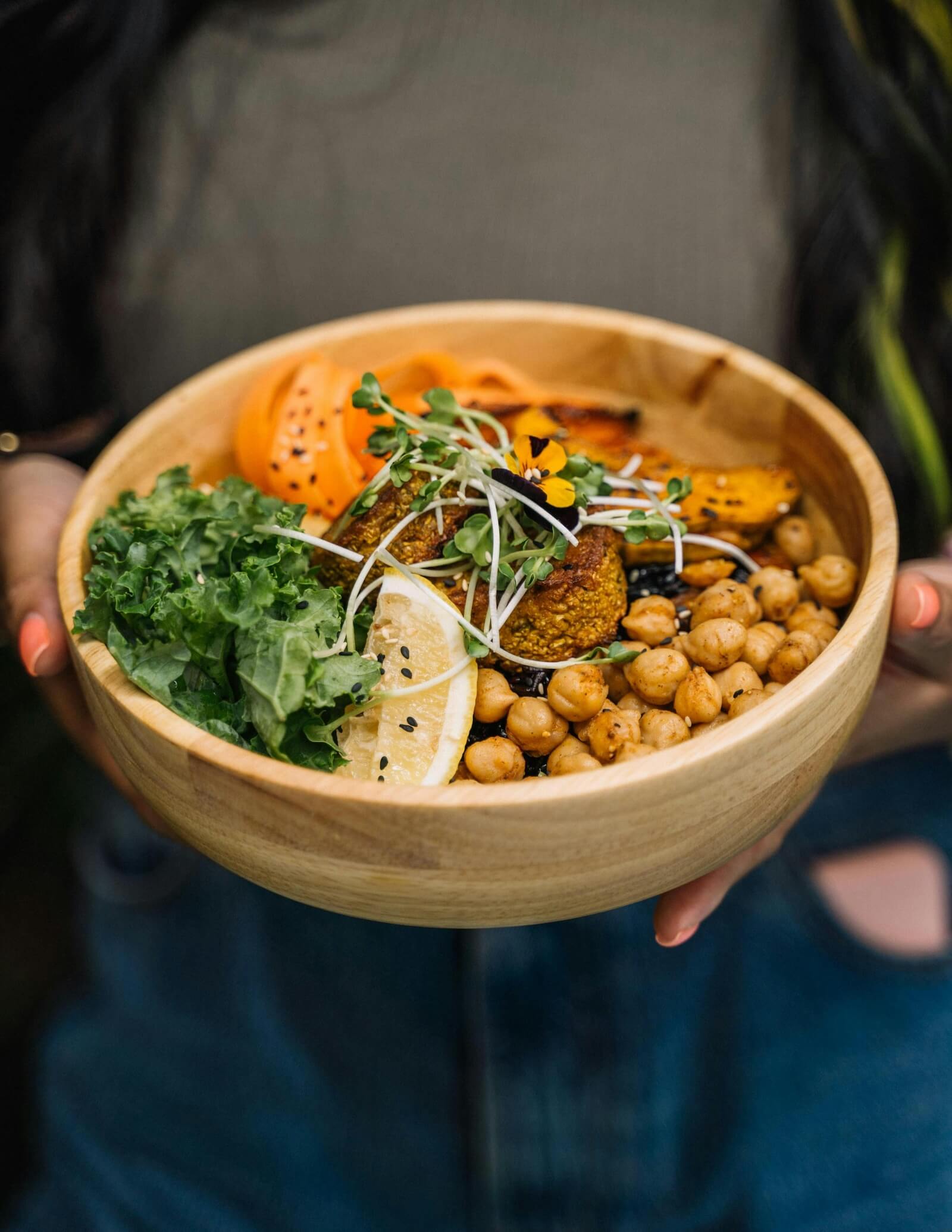Inflammation is the body’s natural response to injury, infection, or imbalance — but when it becomes chronic, it can quietly wreak havoc on your health. Conditions like joint pain, fatigue, digestive issues, autoimmune disorders, and even brain fog are often linked to systemic inflammation simmering beneath the surface.
The good news? You can tame that internal fire naturally.
At Natural Medicine of Denver, we believe in addressing inflammation at its root. Rather than masking symptoms with medication alone, we work with the body’s natural healing systems, using targeted nutrition, herbs, and lifestyle support to restore balance. If you’re ready to feel better from the inside out, let’s explore how food and herbs can significantly reduce inflammation.
What Is Inflammation — and When Does It Become a Problem?
Inflammation is a vital part of your immune system. It’s how your body defends itself against infection, injury, or toxins. In acute situations, it’s helpful, like when you twist your ankle or catch a cold.
But chronic inflammation is a different story.
When the immune system stays activated for too long, it can begin to damage healthy tissue. This low-grade inflammation can be hard to spot, but it may contribute to:
- Digestive disorders (IBS, IBD)
- Hormonal imbalances
- Autoimmune disease
- Cardiovascular issues
- Brain fog or mood disorders
- Skin flare-ups (eczema, psoriasis)
- Fatigue and sleep disturbances
Rather than targeting just one symptom, naturopathic medicine addresses inflammation system-wide, looking at what’s fueling the fire and what can cool it down, starting with what’s on your plate.
The Inflammation-Fighting Power of Food
You’ve probably heard the saying “food is medicine,” and that couldn’t be truer when it comes to inflammation. The right foods can help calm the immune system, lower oxidative stress, and support the gut, which is key in regulating inflammatory responses.
Top Anti-Inflammatory Foods to Embrace
Leafy Greens – Kale, spinach, arugula, and collards are rich in phytonutrients and antioxidants like quercetin and vitamin C.
Fatty Fish – Salmon, mackerel, sardines, and anchovies contain high omega-3 fatty acids, which help reduce inflammation and support brain and heart health.
Berries — Blueberries, raspberries, and strawberries are loaded with flavonoids, such as proanthocyanidins, which protect cells and reduce oxidative stress.
Avocados – Packed with monounsaturated fats and fiber, avocados help reduce inflammatory markers and support hormone balance.
Olive Oil – Especially extra virgin, this healthy fat is a staple in Mediterranean diets and contains oleocanthal, a natural anti-inflammatory compound.
Sweet Potatoes are a great source of beta-carotene and fiber. These root veggies help stabilize blood sugar and reduce inflammation.
Whole Grains – Quinoa, millet, buckwheat, and oats (ideally gluten-free) offer anti-inflammatory fiber to support gut health.
Nuts & Seeds – Almonds, walnuts, chia seeds, and flaxseeds are rich in omega-3s and minerals that help calm inflammation.
Foods That May Be Fueling the Fire
Just as some foods soothe inflammation, others can trigger or worsen it. Consider reducing or eliminating:
Processed Foods – These often contain refined oils (including seed oils), preservatives, and artificial ingredients that disrupt digestion and inflame the gut.
Added Sugar – Sugar spikes insulin levels and promotes the production of inflammatory markers like cytokines.
Refined Carbohydrates – White bread, pasta, and pastries can increase blood sugar and inflammation.
Excess Alcohol – Significant alcohol can damage the gut lining, cause blood sugar abnormalities, diminish the protective actions of the liver, and ultimately promote systemic inflammation.
Dairy & Gluten – These can be inflammatory for some people, especially those with food sensitivities or autoimmune conditions. An elimination diet may help uncover any triggers.
Healing Herbs to Support Inflammation Reduction
Nature has provided us with a cabinet full of natural anti-inflammatories, many of which have been used in traditional medicine for centuries.
Here are some of our favorite herbal allies for reducing inflammation:
Turmeric (Curcuma longa)
Turmeric is the most well-known anti-inflammatory herb. It contains curcumin, a compound that blocks inflammatory pathways and supports liver function.
Tip: Pair turmeric with black pepper (which contains piperine) to enhance absorption.
Ginger (Zingiber officinale)
This warming root soothes the gut, supports circulation, and reduces pain and inflammation. It’s a great option for arthritis and digestive inflammation.
Frankincense (Boswellia serrata) (Frankincense)
An Ayurvedic herb known for reducing joint inflammation, boswellia is helpful in conditions like osteoarthritis and IBD.
Licorice Root (Glycyrrhiza glabra)
Licorice has gut-soothing and immune-modulating properties. It helps reduce inflammation in the digestive tract and supports adrenal function, especially in cases of chronic stress.
Green Tea (Camellia sinensis)
Rich in the antioxidant EGCG (epigallocatechin-3-gallate), green tea provides antioxidant protection, supports metabolism, and reduces markers of inflammation.
Milk Thistle (Silybum marianum)
Supports liver detoxification, which is essential for clearing out inflammatory byproducts and toxins from the body.
The Role of the Gut in Inflammation
Did you know over 70% of your immune system lives in your gut? That means digestive health is directly tied to inflammation levels throughout your body.
Leaky gut — or intestinal permeability — occurs when the gut lining becomes damaged, allowing undigested food particles and toxins to enter the bloodstream. This triggers an immune response and contributes to widespread inflammation.
At Natural Medicine of Denver, we support gut healing through:
- Personalized dietary recommendations tailored to reduce triggers
- Probiotic and prebiotic support to restore gut flora
- Gut-healing herbs like marshmallow root, slippery elm, and aloe
- Lab testing to assess for food sensitivities, dysbiosis, and more
Lifestyle Matters Too
While food and herbs are foundational, lifestyle also plays a significant role in inflammation. Simple daily habits can tip the scales toward healing.
Stress Management – Chronic stress raises cortisol and increases inflammation. Practices like breathwork, meditation, and craniosacral therapy can help regulate the stress response.
Sleep Hygiene – Poor sleep promotes inflammatory markers. Aim for 7–9 hours of restful, uninterrupted sleep.
Movement – Gentle exercise like walking, yoga, or stretching helps reduce inflammatory cytokines and supports circulation.
Sunshine & Nature — Getting outside for sunlight and fresh air supports vitamin D production and mental well-being, both anti-inflammatory allies.
Take the First Step Toward an Anti-Inflammatory Lifestyle
Reducing inflammation isn’t about perfection — it’s about small, consistent steps that add up over time. At Natural Medicine of Denver, we’re here to guide you with personalized care, helping you understand your body’s signals and work with them, not against them.
Whether you’re managing an autoimmune condition, healing your gut, or just want to feel more energized and resilient, anti-inflammatory living is within reach.
Schedule a free consultation with our naturopathic team today and discover how nutrition, herbal medicine, and holistic care can help you feel your best naturally.



